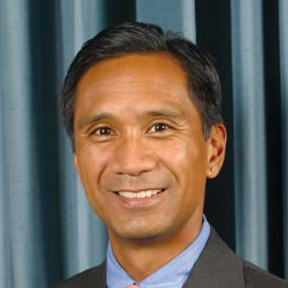By all accounts, chemical weapons were used in the August 21 attack in the eastern Ghouta suburbs of the Syrian capital, Damascus. Syrian president Bashar Assad denies that his regime used such weapons: “How is it possible that any country would use chemical weapons, or any weapons of mass destruction, in an area where its own forces are located?”
The Obama administration believes otherwise. According to a White House statement, “The fact that chemical weapons were used on a widespread basis, against innocent civilians, with tragic results is undeniable. And there is very little doubt in our minds that the Syrian regime is culpable.”
Predictably, the hue and cry has gone up for the United States to intervene. Secretary of Defense Chuck Hagel says that the U.S. military is “in place to be able to fulfill and comply with whatever option the president wishes to take.”
But even if we assume that the Assad regime has used chemical weapons against its own people (which has not yet been proven by any information made public), this tragedy does not demand a U.S. military response.
To be sure, Assad is a thug—much like Saddam Hussein and Slobodan Milo�ević were thugs (both of whom were also on the receiving end of U.S. military intervention). But being a thug is not the same thing as being a threat to U.S. national security, which should be the sole criteria for employing U.S. military force. And the reality is that Syria does not represent a threat to U.S. national security (just as Hussein and Milo�ević did not). Syria’s military and its possession of chemical weapons are not threats to America. They are threats to the Syrian people. But the U.S. Constitution does not authorize the U.S. government to provide for other countries’ security, or to protect their citizens.
Of course, that has not stopped presidents of all political stripes from using military force when U.S. national security isn’t at stake. Since the end of the Cold War, U.S. military force has been used at least a dozen times by five different administrations. But only once—Operation Enduring Freedom in Afghanistan, in response to the 9/11 terrorist attacks—was it used as a result of a direct threat to U.S. national security.
Indeed, the last time the United States formally declared war—power given to Congress, not the president, as set forth in Article One, Section Eight of the Constitution—was for World War II.
Constitutional issues aside, there is also the question of the effectiveness of military action. The most talked about option is cruise-missile strikes. Proponents of such action argue that these would be precise strikes to take out Assad’s chemical weapons capability. But this would require nearly perfect intelligence about where all the weapons are—and if there’s anything we should have learned from the Iraq war, it’s that intelligence is anything but perfect.
If the weapons are deployed in a myriad of locations, the number of missile strikes would be anything but small—perhaps several hundred. This would result in unavoidable collateral damage. If the chemical weapons are located in or near the same neighborhoods where they were used, how would we prevent killing innocent Syrian civilians (the very thing we are trying to stop)?
So—much like the person with a hammer, to whom everything looks like a nail—we continue to believe that every problem can be solved by the military.
There is also no guarantee that U.S. military action would result in the Assad regime behaving in a way that we define as acceptable. The U.S. enforced a no-fly zone over Iraq from 1991 to 2003, but that did not make Saddam Hussein bend to U.S. wishes. And the post-9/11 bombing of the Taliban regime in Afghanistan did not cause them to give up Osama bin Laden.
And what of Assad’s response to any U.S. military action? He knows that the U.S. already is supporting the rebels. Missile strikes would likely be perceived as the first step to larger U.S. military intervention and forcible regime change. At that point, Assad would be backed into a corner with nothing to lose. In a fit of desperation, he could choose to unleash whatever is left of his chemical weapons on more innocent civilians.
One more consideration: What if everything goes according to plan (although history tells us that it never does)? What if Assad is ultimately deposed and the rebels win? We know that the Syrian opposition includes those with al Qaeda links—such as the al Nusra front, whose leader, Abu Mohamman al-Gola, said in a YouTube posting, “For every chemical rocket that has fallen on our people in Damascus, one of their villages will, by the will of God, pay for it. On top of that we will prepare a thousand rockets that will be fired on their towns in revenge for the Damascus Ghouta massacre.” How do we know that Assad’s chemical weapons won’t fall into their hands?
Sadly—regardless of the administration’s overall political views—we continue to suffer from Madeleine Albright syndrome.
As Secretary of State, Albright challenged then chairman of the Joint Chiefs of Staff Colin Powell’s view that the United States should restrict its military interventions to situations in which vital U.S. interests were threatened, quipping: “What’s the point of having this superb military you’re always talking about if we can’t use it?”







